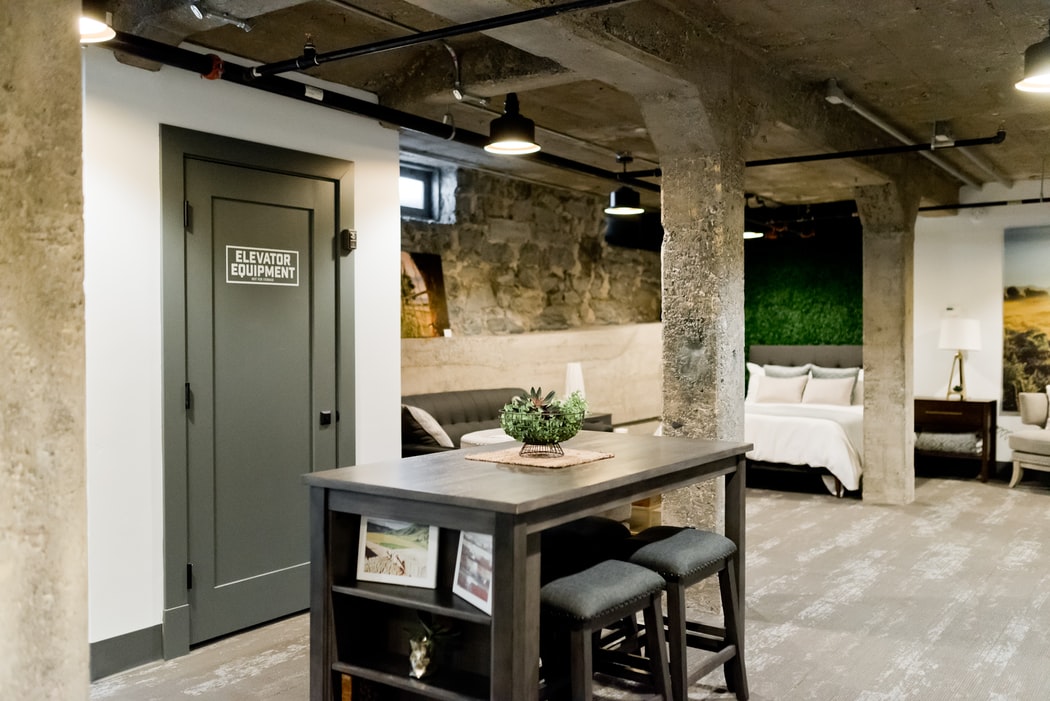Water in your home can cause serious damage, especially in the basement!
 Photos by: Stock Images
Photos by: Stock Images
Whether it's chronic moisture or a flood, you may face expensive repair and cleaning costs. One of the best ways to keep your home and basement dry is to take immediate action before an emergency occurs. Basements are usually the wettest spots in the house, as they are prone to high humidity. This is because they are underground, have few or no windows, and are surrounded by concrete.
When these factors come together, they create the ultimate moisture reservoir in the basement. If you want to avoid serious damage, be sure to check out these few tips on how to prevent moisture in your basement.
Detect moisture in the basement
Note that even new, well-built basements can still have moisture and air quality issues. Even if you just moved into a new house, you can still have problems with moisture. One of the best options is to waterproof the basement and seal any cracks in the foundation wall that you've discovered.
Remember that the key to basement waterproofing starts with properly identifying the source of the problem, which means you need to identify the source of leaks in your wet basement. Some important signs of high humidity are visible mold, damp walls, a musty smell, condensation, and mildew.
Tips for dealing with moisture in your basement
Repair the cracks
After the house is built, cracks may appear. Note that cracks can appear even in freshly poured concrete. If settlement cracks have formed, moisture can escape during the rainy season or when the snow begins to melt. These cracks are usually easy to repair, you only need a chisel, a hammer, patch cement and a spatula.
When cracks appear in your basement floor, it can indicate a serious structural problem. Although most of these cracks do not require foundation repair, if the cracks lift, it would require professional attention.

Waterproof walls
Professionals solve water problems in the basement by sealing walls and floors. You can use waterproof sealer on concrete walls to prevent water seeping through, and a thick coat of waterproof paint will prevent condensation from collecting on the walls.
Just remember that sealant is not a solution to existing leaks and cracks, which means you should only apply it if the basement is not leaking. Professionals typically dig trenches around basement walls and then cover them with waterproofing material to reduce internal moisture.
gutters and downspouts
When moisture builds up on the outside of the house, it's often impossible to prevent it from getting a little damp inside. An efficient rainwater and melted snow collection system along the roof is very important. It directs water flow away from paved surfaces, toward the drainage system, and away from the home.
Regular control and Cleaning your gutters can improve their effectiveness. Note that you should clean them at least twice a year, once at the beginning of summer and once at the end of the fall season. Also, check the length of the downspouts to ensure they successfully drain water away from the basement and foundation.

Insulate the cold water lines and install a sump pump
You need to insulate pipes to prevent winter freezing and sweating. On hot and humid days, chilled water pipes can cause condensation to form around them, adding to the overall humidity in the basement.
Install one dirty water pump is another effective solution to remove water from under the foundation of the house. It collects the water in a catch basin, usually placed under the basement, and directs the leachate through a drain pipe. This may be expensive, but it's a long-term and effective solution.
Use a dehumidifier
One of the easiest devices to use to reduce the humidity in your basement is to use a basement dehumidifier. Because air moves through the home like a chimney, it can be a major cause of dampness in the basement, especially when the air outside is humid.
Depending on the moisture level, you can either buy a dehumidifier from the store or make one yourself. This pulls gallons of moisture out of the surrounding basement air on a daily basis. Note that if the humidity level is high, you should buy an effective and good quality dehumidifier.
Finally
Deal with moisture in the basement can be quite daunting, but knowing how to prevent and fix the problem can be very helpful. Condensation in the walls, windows and pipes is a clear sign that the basement has high humidity levels. Try using the above tricks to get rid of excess moisture and you won't have a problem.




